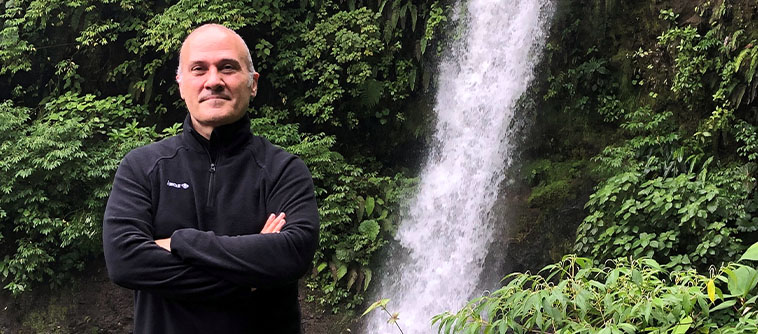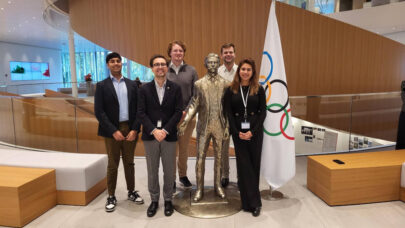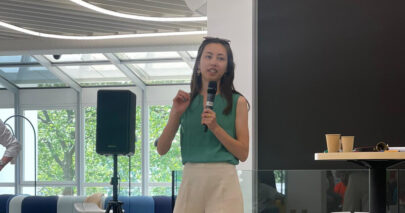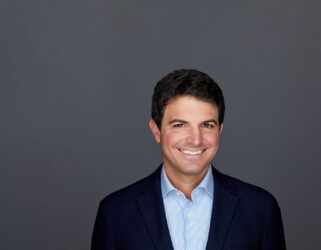
COVID-induced travel restrictions have caused multiple butterfly effects the world over. Take the strawberry, for example.
“In our sector, you have to go and see the fruit; it’s like going to the doctor,” said Manuel Madrid (MBA 1999) speaking from his home in Valencia, in eastern Spain, which is famous for its fertile fields which produce everything from runner beans to melons.
“So, where we most notice the change is the lack of ability to travel, industry fairs and meetings – ours is a very person-centered industry and doing things online just isn’t the same.”
And yet COVID has not whipped the carpet from under the fruit and vegetable industry’s feet like it has elsewhere. In fact, business is good. Supermarkets have seen a surge of activity, which has only benefitted purveyors of fruit and vegetables.
“In terms of sales, demand is high,” Madrid said. “Investors have finally realized that fruit and vegetables is a great sector to invest in.” Add to that the fact that the sector already operated among high levels of hygiene, so COVID levels are nothing new.
“Europe’s fruit sector alone is worth 40 billion euros,” explained Madrid. “There’s been a recent flurry of activity concerning funds investing in agriculture because it’s very secure, and relatively untouched by economic ups and downs,” he added, describing the sector as a “defensive investment”.
“Yes, logistics have changed a little. In the first few weeks of the pandemic, some container vessels coming from China stalled, but really these types of hiccups were solved after the first few weeks.”
The sprouting of a long career in the fruit and veg industry
Madrid started Fruit Profits, a consultancy for the fruit and vegetable sector, in 2010 when he became convinced there was a niche for companies that needed specific fresh-produce advice and did not want to hire a technical engineer full-time to benefit from their occasional expert advice.
The company’s work is two-fold: analyzing clients’ value chains and seeing where improvement can be had on the one hand, and carrying out due diligence for investment funds on the other. The work is varied and requires expertise spanning plant genetics, production, logistics and storage.
An engineer by trade, Madrid entered the industry himself from the technical side and went on to work at Driscolls European Genetics, Syngenta Seeds Vegetables Europe and Chiquita Brands Latin America in Costa Rica.
“I decided to do an MBA in part to be able to branch into non-technical roles; to reach upper management roles,” he said. Shortly after, he was European CEO for Driscolls European Genetics – a subsidiary of the US company Driscolls, the largest berry marketer in the world. Driscolls has a 3-billion-USD annual turnover.
“The IMD MBA provided all the tools I needed to develop further into management roles and eventually set up my own business. I learned a lot from the faculty, but also from my peers, being such a varied group of people with many different sets of skills.
The inspiration to go it alone – the fruit of a crisis
It was the 2008 financial crisis that spurred on the creation of Fruit Profits, as Madrid left Holland and returned to his native Spain. By 2010 the company was up and running.
On that, he stressed, “do what you know,” explaining how he had initially dabbled with the idea of online education in the sector, before realizing it wasn’t his area of expertise. “Settling on the idea of what you’re going to sell is the hardest bit,” he said.
The entrepreneurship lessons of the MBA prepared him for his solo venture, he explained. He still has some of his MBA notes some 21 years after earning the degree.
The areas that he revisits most are financial analysis, accounting, organizational behavior and management accounting. He values the networking side enormously too: “About 60 percent of our intake remain in touch, after all these years.”
In 2018, the Costa Rican subsidiary of Fruit Profits was born as a natural progression from having many Central and South American clients. Madrid now spends around half the year in the tropical country. “Production there goes on for 52 weeks a year and that’s pretty much the case in Spain, too, owing to the good climate,” he said.
New normal for fruits and vegetables
In terms of industry trends, Madrid believes more regional pairings are on the horizon. “Regions are going to work as blocks. South America will serve the US; North Africa Europe and Asia has the Philippines.”
Madrid will be glad when travel normalizes, especially in South American countries which lack Europe’s free movement, because being on the scene allows for a full assessment of the value chain surrounding the fruit – from the infrastructure in place to potential production issues.
“For instance, there’s a project to improve soil fertility in Guatemala that I have on the cards, but it cannot get underway until I physically go there.”
On the plus side, COVID has fast-tracked changes that were already underway in the industry aimed at reducing the carbon footprint of fruit and vegetable growing; production was, and continues to be, increasingly local. Consequently, the produce is ever fresher and, happily, it would seem there is little desire to reverse these positive trends.


